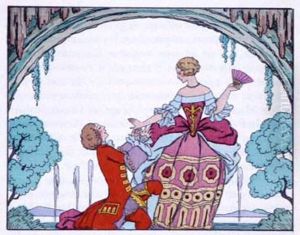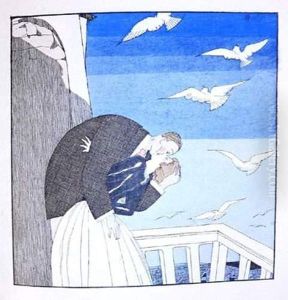Henri, Duc Massa De Regnier Paintings
Henri de Régnier, often styled Henri, Duc Massa De Régnier in a flourish of nobility that embellishes his already distinguished name, was a French symbolist poet and novelist, born in Honfleur, Calvados, on December 28, 1860. Despite the grandeur that the title 'Duc Massa' suggests, it's important to clarify that this particular styling is not widely recognized in historical records pertaining to Régnier, and might be a confusion or embellishment. His contributions to literature, however, need no such embellishment, as his work stands as a testament to his talent and influence in the symbolist movement.
Henri de Régnier's literary career began in the late 1880s, a period marked by a rich cultural milieu in France, with the symbolist movement at its zenith. Symbolism, characterized by its emphasis on emotions, feelings, and the mystical, was a perfect match for Régnier's poetic and narrative sensibilities. He was deeply influenced by the works of Stéphane Mallarmé, one of the pivotal figures of the movement, and his poetry often reflected the symbolist fascination with the arcane and the esoteric, melding classical themes with a modern sensibility.
Régnier's oeuvre includes a wide range of writings, from poetry collections such as 'Les Jeux rustiques et divins' (1897) and 'La Cité des eaux' (1903), to novels and short stories like 'La Double Maîtresse' (1900) and 'Les Rencontres de Monsieur de Bréot' (1904). His literary style evolved over the years, transitioning from the heavily symbolist tone of his early work to a more classical and narrative-driven approach in his later years. This evolution reflects Régnier's deepening engagement with the literary tradition, moving beyond the symbolist aesthetic to explore the human condition and societal norms in a more direct and accessible manner.
Régnier was also a prominent literary figure in Parisian circles, associated with the Revue de Paris and the Académie française, to which he was elected in 1911, succeeding another giant of French literature, Émile Zola. His contributions to French literature were recognized with several awards, including the prestigious Grand Prix de Littérature of the Académie française.
Henri de Régnier's personal life, marked by his marriage to Marie de Heredia, daughter of the poet José-Maria de Heredia, was as storied and complex as his literary works. Their relationship and the intellectual milieu they inhabited were reflective of the vibrant, tumultuous, and often scandalous world of Parisian literary society at the turn of the century.
Henri de Régnier passed away on May 23, 1936, in Paris, leaving behind a rich legacy as one of the leading figures of the symbolist movement and a significant contributor to French literature. His work continues to be celebrated for its lyrical beauty, its exploration of the interplay between reality and illusion, and its profound psychological insight.


